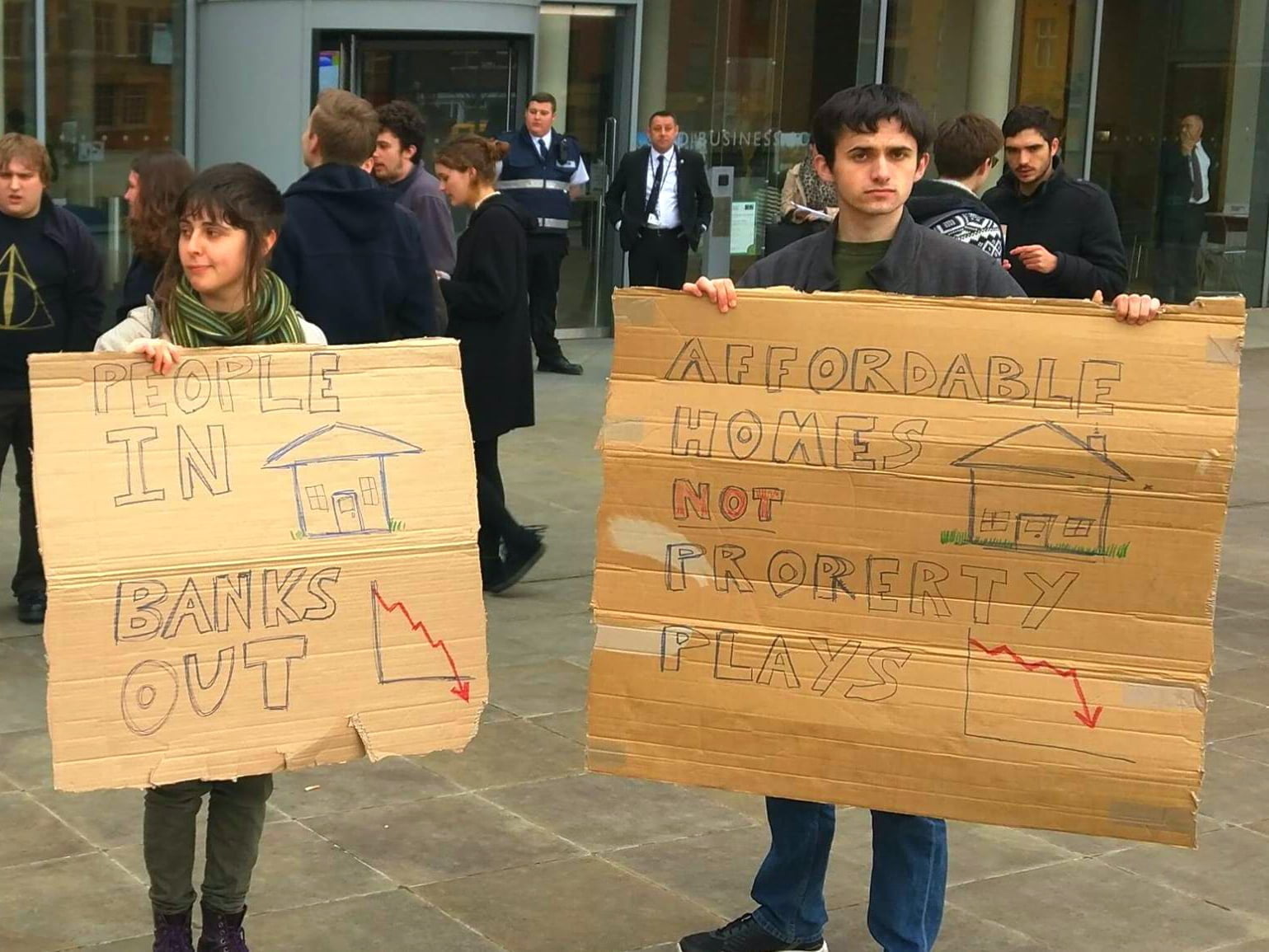This month, Oxford was again named the least affordable city compared to average earnings. In response to this housing crisis, a number of protests have been seen across Oxford in solidarity with those affected. James Morrow of the Oxford Marxist society discusses the question of housing and homeless and points the way forward.
This month, Oxford was again named the least affordable city compared to average earnings. On top of this, savage cuts to local authority funding will lead to a loss of more than half of the beds available for the homeless in Oxford by 2018. Given this, it is no wonder that if you come to visit Oxford, before you even get to the colleges, the first thing you are likely to notice is the sheer number of homeless people on the street.
In response to this housing crisis, the Oxford Marxists society recently held a talk on homelessness. Amongst the speakers was a local homeless musician called Neo, who has become a celebrity through his music (money raised through his album is going towards the establishment of a permanent shelter in Oxford open to all). Having only recently returned to Oxford, Neo was appalled to see the explosion of homelessness that has taken place since he left. As winter arrived and reports of deaths emerged across the country, Neo and other activists were forced to act to fill the vacuum left by the government.
As a temporary measure, the group found shelter for 20 homeless people in the form of Iffley House, owned by Wadham College. Though hastily set up, and without proper support, the project proved successful. One person was rehoused and several left after finding jobs.
Inevitably, the group was moved on, as Iffley House is set to be developed into exclusive accommodation for students. This kind of development is reflective of a wider policy adopted by Oxford University that leaves locals not just with fewer houses being built, but also with existing properties lost to the University. A new property had been found by the group – Osney Mill, owned by the Said Business School; but even as the meeting was taking place, Neo was receiving phone calls about potential legal challenges.
As a result, protestors expressed their anger recently against the Said Business School’s actions. Hurried attempts were made to try to seal off space in Osney Mill, previously unused for seven years. The protest expressed much of the same discontent as another protest held last term in opposition to a local conference on the topic “making money out of housing”. There, noisy protestors made sure their voice was heard by those inside who had come to attend workshops on rental growth strategies and maximising profits for landlords. Action will continue with protests outside Oxford courthouse.
Nationally, homelessness is the most obvious – and disgusting – symptom of the wider housing crisis. While in the past homeless people were considered to be drunks and junkies, this widely accepted myth is becoming harder to maintain as the precariousness of the economy blurs the lines between “working people” and “layabouts”. According to Shelter, around one-in-three homeless people in London are actually working, despite not having somewhere to sleep at night. This backs up Neo’s many accounts of ordinary people suddenly finding themselves on the street; as he says, “most working people are only one or two months’ rent from becoming homeless themselves.”
With zero-hour contracts, the gig economy, and underemployment on the one hand, and the collapse in social housing and lack of affordable housing on the other, more and more are likely to find themselves on the streets.
And yet, despite this growing crisis, the number of empty homes outnumbers the homeless. There are 4.1 million homeless people in Europe, but 11 million empty homes across the continent. But of course, investors’ freedom to buy houses – like any other commodity – trumps the rights of “working people” to basic shelter. This is the inherent nature of capitalism. And this is why we need a revolutionary socialist alternative.






